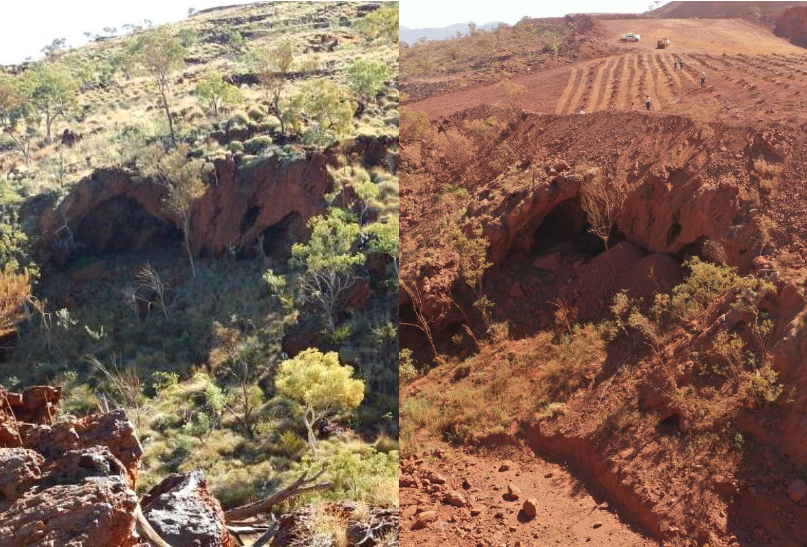Juukan probe calls for protection
 An inquiry into the destruction of the Juukan Gorge rock shelters has called for new laws to protect sacred sites.
An inquiry into the destruction of the Juukan Gorge rock shelters has called for new laws to protect sacred sites.
In May 2020, mining giant Rio Tinto destroyed two 46,000-year-old rock shelters in Western Australia's Pilbara region, despite the Puutu Kunti Kurrama and Pinikura (PKKP) people warning of the site's cultural significance.
Rio Tinto's actions were deemed “inexcusable and an affront, not only to the PKKP but to all Australians”, in the inquiry.
The PKKP say no amount of money would be able to cover the hurt caused by the blast.
The Juukan Gorge destruction led to the resignation of three of Rio Tinto's senior executives.
The Joint Standing Committee on Northern Australia has heard questions over the adequacy of state and Commonwealth heritage protection laws.
It has also investigated the power imbalance between traditional owners and mining companies, particularly when it comes to compensation.
The final report from the inquiry has been tabled.
It calls for state and territory legislation to be modernised to protect sites of cultural value to Aboriginal and Torres Strait Islander people.
Committee chair Warren Entsch said it is “inconceivable” that Australia does not have formal protections for sacred sites.
“Action must be a matter of national priority,” he said.
The committee suggested one big and obvious change - giving federal responsibility for cultural heritage protection to the office of the Minister for Indigenous Australians, not the Minister for Environment as it currently stands.
The PKKP unsuccessfully tried to use the Aboriginal and Torres Strait Islander Heritage Protection Act to prevent the destruction last year. This bill sits with the Environment Minister.
The committee also called for new Commonwealth legislation to be created to better protect sacred sites, as well as some improvements to the Native Title Act.
It called on the Commonwealth to consider mapping cultural heritage sites across Australia, including sites that have already been destroyed. Secret sites and objects could be hidden at the discretion of traditional owners.
The report says the Commonwealth should override decisions made under “inadequate” state or territory laws that risk sites of great value to Aboriginal and Torres Strait Islander people.
The committee said prescribed body corporates (PBCs) - Indigenous organisations established after a native title determination - should be required to be more transparent.
“The Committee heard concerning reports that some PBCs are not transparent in their decision-making with respect to their local community, resulting in decisions being taken to allow the destruction of cultural heritage sites,” the report said.
The committee said any new legislation should be underpinned by the United Nations Declaration on the Rights of Indigenous Peoples.
A statement from the PKKP says “actions not words will be the true test” of any new attempts at protection for sacred sites.
“Almost 18 months after the destructive blast at Juukan Gorge the great sense of sorrow and loss remains for our people,” the statement said.
Labor senator Pat Dodson said the inquiry spent significant time on the ground consulting with traditional owners and Aboriginal communities.
“[We were] totally moved by the level of lack of power they have in the situation to protect themselves,” he said.
“This report highlights the systemic nature of the injustice that's been perpetrated on Aboriginal people by inadequate legislative cultural heritage laws and where there's been deliberative support for the industry against First Nations peoples.”
The WA Government is working on legislation to replace the 50-year-old Aboriginal Heritage Act, which will abolish the current section 18 process. This process allowed Rio Tinto to gain government approval to blast Juukan Gorge.
The inquiry's report said there are dozens of other sites across Australia that could become the next Juukan Gorge.
The committee's findings are not legally binding, leaving it at the discretion of governments and companies to respond accordingly.
Some MPs have called for Rio Tinto to face a judicial inquiry over the blast.








 Print
Print